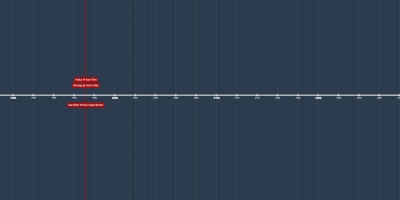Establishment of Governmental/Disciplinary Cultural Power (26 фев 1800 г. – 18 фев 1899 г.)
Описание:
"... unlike power in the juridico-discursive mode, disciplinary or governmental power is not given over to a single function... Governmental power, by contrast, is characterized by the multiplicity of objectives which it pursues, objectives which have their own authorization and rationality rather than being derived from the interests of some unifying central principle of power such as the sovereign or, in later formulations, the state. Whereas in these formulations the state or sovereign in its own finality, governmental power... can be harnessed to the pursuit of differentiated objectives whose authorization derives from outside the self-serving political calculus of juridico-discursive power. As Foucault puts it, 'the finality of government resides in the things it manages and in the pursuit of the perfection and intensification of the processes which it directs' (Foucault 1978: 95). Nineteenth century reformers thus typically sought to enlist high cultural practices for a diversity of ends: as an antidote to drunkenness, an alternative to riot, or an instrument for civilizing the morals and manners of the population. While these uses were often closely co-ordinated with bourgeois class projects, their varied range stood in marked contrast to the earlier commitment of high culture to the singular function of making manifest or broadcasting the power of the sovereign.Second... and perhaps more important, governmental power aims at a different kind of effectivity from power conceived in the juridico-discursive mode. The latter is exercised by means of laws, edicts and promulgations supported by whatever means of enforcement the prince has at his disposal. Governmental power, however, typically works through detail calculations and strategies which, embodied in the programmes of specific technologies of government, aim at manipulating behaviour in specific desired directions. The 'instruments of government,' as Foucault puts it, 'instead of being laws, now come to be a range of multiform tactics' (Foucault 1978: 95)--and especially of tactics which, in aiming at chaged conduct as their outcome, depend on a close relationship between the government of the state and the government of the self. The critical developments affecting the sphere of culture in these regards concerned the shift... from a conception in which culture served power by embodying, staging or representing it, making it spectacularly visible. In place of this, culture was increasingly thought of as a resource to be used in programmes which aimed at bringing about changes in acceptable norms and forms of behaviour and consolidating those norms as self-acting imperatives by inscribing them within broadly disseminated regimes of self-management."
Source: Tony Bennett. The Birth of the Museum: History, Theory, Politics (1995). Pg. 22-23.
*Date range approximate
Добавлено на ленту времени:
Дата:
26 фев 1800 г.
18 фев 1899 г.
~ 99 years
